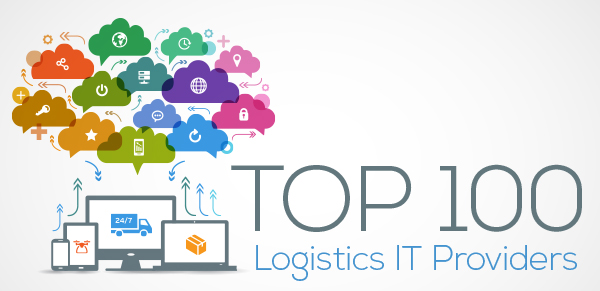Articles
Transportation Management Systems (TMS)

Inbound Vendor Programs
A lot of attention is paid to the control and management of outbound shipping to someone’s customers, but many times the expense of inbound vendor traffic and its impact on landed cost is overlooked. Sometimes because the buyers get no credit for managing freight costs of inbound shipping and expertise of the shipping staff is […]
Read More
Trends—October 2015
Amazon Dash Turns the Tide When Amazon debuted its Dash Replenishment Service (DRS) and buttons in spring 2015, it gave consumers a taste for how the Internet of Things (IoT) can simplify even mundane tasks. The underlying DRS architecture enables connected devices that measure consumable usage to automatically order physical goods from Amazon when supplies […]
Read More
If Yogi Berra Were a Logistics and Supply Chain Manager
UltraShipTMS (and many of its employees) is native to the New York metro area. We all grew up with Yankees baseball among the constants of life in this part of the world. That is why it was with great sadness that we marked the passing of Yogi Berra, who, like the Yankees and like UltraShipTMS, […]
Read More
Intelligent Technology Provides Visibility into Supply Chain
As more and more companies scale and expand, managing transportation is quickly becoming a challenging factor of growth. More so, companies need to have complete visibility into their entire transportation process in order to operate as efficiently and effectively as possible. While many TMS providers can promise transportation management, intelligent transportation technology also provides organizations […]
Read More
Trends—August 2015
Warehouse Performance: It’s a Whole New Game One new way to save money on warehouse labor costs is to turn work into a game. No, we don’t mean a chucking-things-across-the-warehouse-floor kind of game, but creating competition through gamification. It’s a way to drive down warehouse labor costs by increasing employee performance and morale. The process […]
Read MoreOvercoming LTL Shipping Challenges
Less-than-truckload (LTL) transportation involves moving shipments that won’t fill a 48- or 53-foot semi-trailer. LTL could be half of a full shipment, a single pallet, or a single box. LTL shipping creates many challenges, and understanding how to overcome them is key to efficiency. Adam Robinson, marketing manager of third-party logistics (3PL) provider Cerasis Inc., […]
Read More
Working With the Right Enterprise Logistics Provider Makes Good Companies Significantly Better
In any economy, the key for manufacturers, distributors or retailers is competitive advantage. When companies lack competitive advantage—or worse yet, experience competitive disadvantage—a difficult economic environment amplifies the pain. Principal reasons many good companies have struggled with this issue are limited exposure to best practices, technology, tools, training and internal resource capacity. Companies are increasingly […]
Read More
Benchmarking Transportation Processes With TMS Data
Many businesses that ship products use transportation management systems (TMS) for visibility and control within their supply chain operations. The introduction of cloud-based TMS has also opened the door to many small and mid-sized companies to find great tools that fit their budgets. While using TMS capabilities to support everything from carrier rate management, shipment […]
Read MoreCutting Costs While Delighting Customers
North American companies increasingly are seeking data-driven supply chain strategies to lower costs while improving customer satisfaction. Robust technologies and advanced analytics drive the business insight needed to streamline processes and reduce costs from raw materials to end delivery. Sophie Dabbs, vice president of client solutions for third-party logistics provider Transportation Insight, discusses the art […]
Read MoreImproving Shipper/Carrier Relationships
From shippers, receivers, and purchasing agents to carriers and third-party logistics companies, everyone has an opinion on how to reduce trucking costs. But they all agree that to help save money, shippers should build strong relationships with their less-than-truckload (LTL) carriers. Mark Hamblin, vice president of sales, west, for LTL carrier Saia, offers some advice […]
Read More
Communication is Key When Optimizing Logistics Networks
Within any logistics network there are vendors, warehouses, distribution centers, service operations, transportation routes and hubs, carriers, freight forwarders, importers, exporters, and more. The idea of optimizing all of it is enough to give anyone a splitting headache. The goal of optimization is to reduce costs while becoming more efficient. To do this, some companies […]
Read More
Trends—April 2015
Supply Chain Modeling: Believe It! The supply chain sector is increasingly adapting and deploying technology to better understand the unknown. Big data provides a wealth of information and historical precedent to benchmark and optimize current and future events. Modeling and design software similarly affords users the latitude to engineer and plan for potentialities before they […]
Read More
3PLs Put Technology Front and Center
3PLs tap into data-based solutions to help shippers meet their goals.
Read More
Top 100 Logistics IT Providers & Market Research Survey
Inbound Logistics surveys the logistics technology sector and evaluates the top solutions providers leading the way to supply chain excellence.
Read More
Building a Bridge to Continuous Improvement
Tired of relying on e-mail blasts to place freight, L.B. Foster ups its game with a third-party solution that has transformed the enterprise.
Read More
Five Key Questions to Ask a Vendor Before Buying Supply Chain Software
Cloud-based systems have changed the game for software in the supply chain, and their benefits are being applauded at every level of the spectrum. It puts software development into the hands of technology professionals and allows supply chain providers to continue focusing on their core competencies. This means that supply chain providers have access to […]
Read More
How to Get More From Your TMS
Q: Capacity is top-of-mind today. How can supply chain partners collaborate around Transportation Management Systems (TMS) to create capacity? A: There are many ways to collaborate to generate capacity. For example, shippers are increasingly participating in general load boards, tapping into capacity that sometimes flies under the radar. To be successful, they need a TMS […]
Read More
Memphis: America’s Multimodal City
Connecting global supply chains through river, highway, rail, and air transport, Memphis gives businesses the ultimate logistics advantage.
Read More
Choosing Enterprise vs. Software-as-a-Service TMS
Q: What platform options are available to companies investing in transportation management systems? A: Transportation management systems (TMS) come in two essential forms. The traditional form is enterprise software—applications installed on servers that you buy and maintain. The more recent—though hardly new—form is Software-as-a-Service (SaaS), which is provided and maintained by a vendor on the […]
Read More
SaaS TMS Facilitates Carrier Management
Q: How can shippers navigate today’s tight capacity market? A: For companies to have the assurance of consistent, competitively priced, service-oriented capacity through the ups and downs of the transportation marketplace, being a shipper of choice is imperative. Here are a few tips to get started: Go beyond rates. Best practice suggests taking a multi-tiered […]
Read More